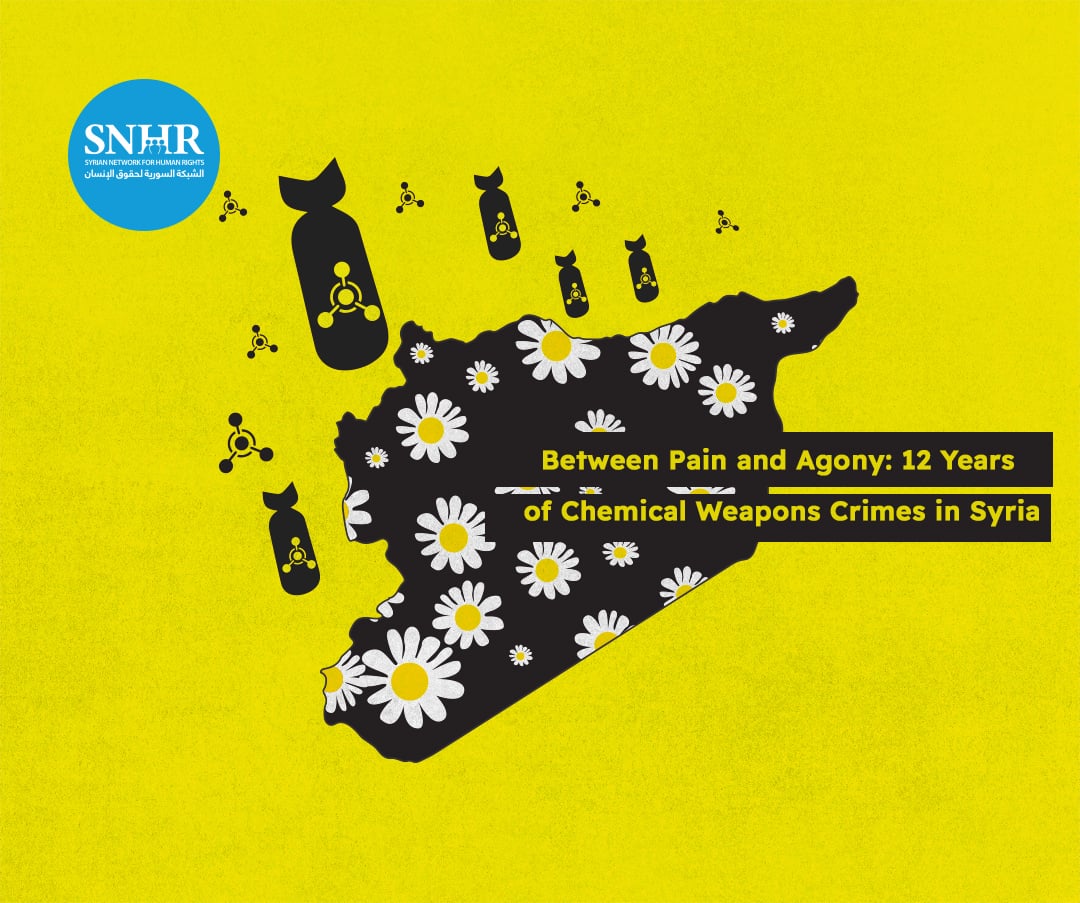No Fewer than 1,514 Syrian Citizens Have Suffocated to Death in Chemical Weapons Attacks, including 214 Children and 262 Women, with 12,000 Injured Still Awaiting Accountability for the Syrian Regime

Languages
Available In
The Hague – Syrian Network for Human Rights (SNHR)
Having been formally approved at the 20th session of the Conference of the States Parties to the Chemical Weapons Convention (CWC), held in 2015, November 30 of every year is observed as the Day of Remembrance for All Victims of Chemical Warfare. This occasion is both a symbolic memorialization of the victims and recognition by the Organization for the Prohibition of Chemical Weapons (OPCW) of the continuing suffering of the survivors of chemical weapons attacks and of their right to effective support and advocacy. On this day, the state parties to the OPCW reaffirm their commitment to bringing about a world truly free of the threat of chemical weapons.
The OPCW commemorates this day in the course of the annual Conference of the State Parties (CSP-29), which will be held this year on November 25-29, 2024. Meanwhile, this year, marks 11 years since the Syrian regime has ratified the Convention, yet the perpetrators are still walking free, as the regime has repeated its crime of using chemical weapons hundreds of times, while tens of thousands of victims still await justice.
In the OPCW’s annual meeting, Fernando Arias, OPCW’s Director-General, told delegates that “despite more than a decade of intensive work, the Syrian Arab Republic chemical weapons dossier still cannot be closed.” He further revealed that that the OPCW Secretary has reported as many as 26 outstanding issues since 2014 with respect to the Syrian regime’s chemical weapons stockpile. Of these 26 outstanding issues, only seven have been addressed. “The substance of the remaining 19 outstanding issues is of serious concern, as it involves large quantities of potentially undeclared or unverified chemical warfare agents and chemical munitions.” Mr. Arias stressed.
The world has borne witness to horrifying and repeated use of chemical weapons in the Syrian conflict by the Syrian regime that used these internationally prohibited weapons against unarmed and defenseless civilians.
Chemical weapons, by their very nature, do not distinguish between fighters and civilians. They wreak havoc on all those affected by them, but particularly on the most vulnerable group, such as children, women, and elderly people. In addition to causing deaths, these attacks inflict serious injuries, disfigurement, and burns, not to mention chronic disease that can stay with the survivors for as long as they live. In addition, they leave profound, long-term psychological scars and traumas.
On this date every year, the Syrian Network for Human Rights (SNHR) sheds light on the massive casualty toll resulting from the use of chemical weapons in Syria, reminding the world that thousands of victims still await justice and accountability for those who devastated their lives.


